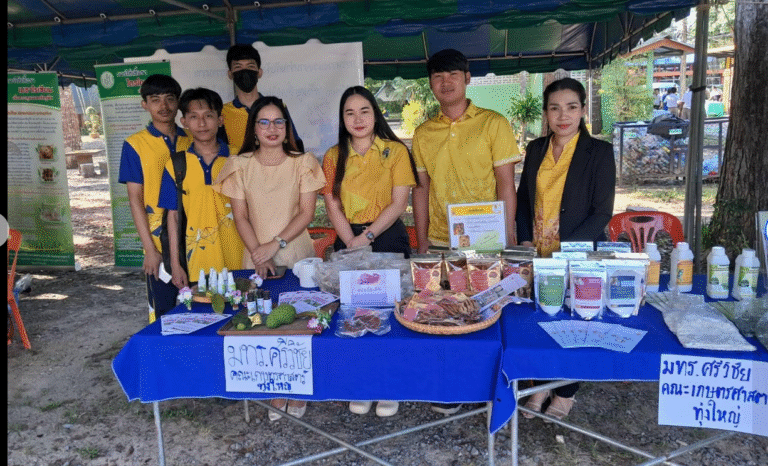Reporters :
Assco . Prof . Chuinut Sujarit,Asst . Prof. Somboon Prasongchan,Asst . Prof . Nutworadee Kanittinsuttitong,Asst . Prof. Natta Kachenpukdee
Evidence Date : 17 September 2024
Related SDGs:
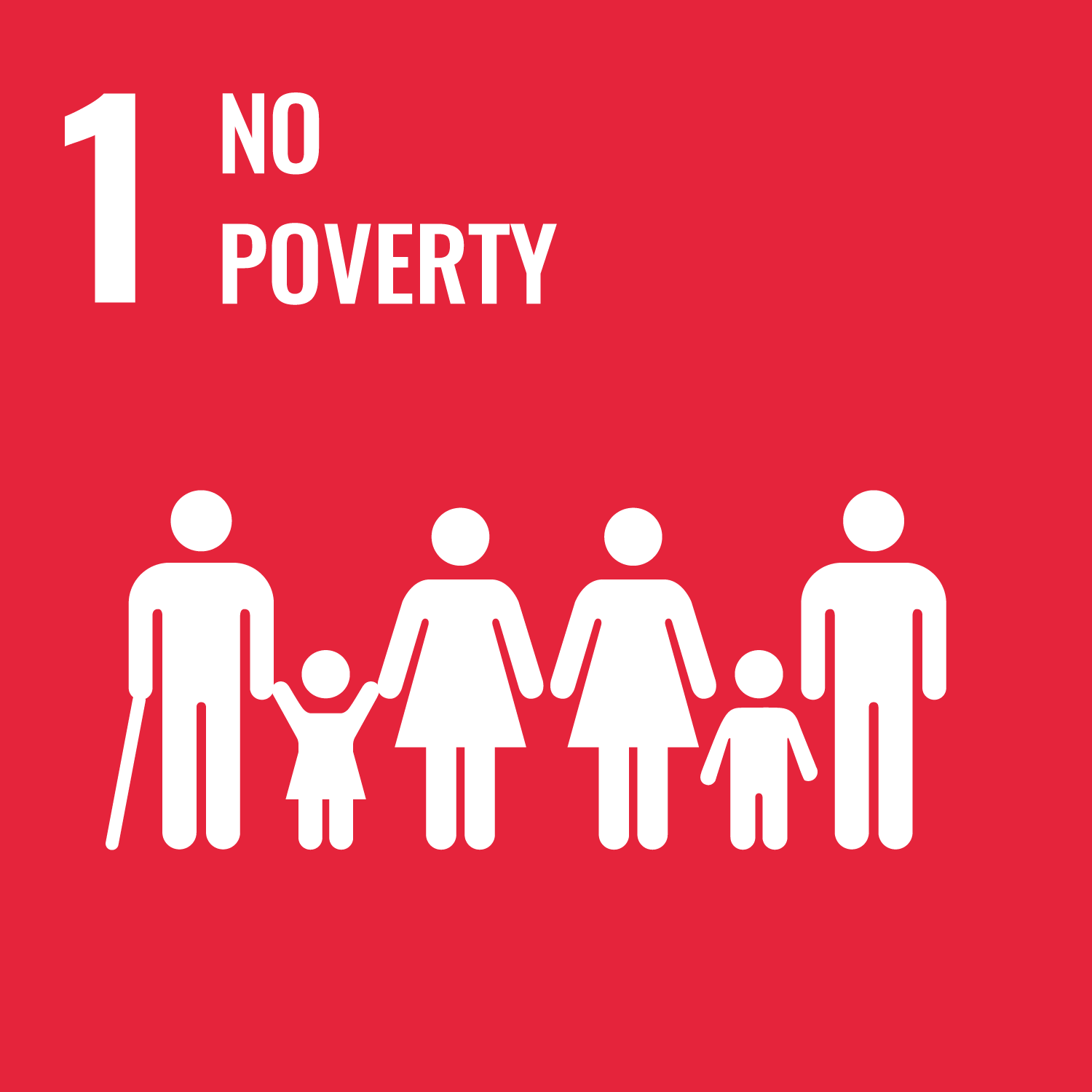
Related Indicators : 1.3.3, 1.3.4, 1.4.1, 1.4.2, 1.4.3, 1.4.4
Details :
At the heart of Rajamangala University of Technology Srivijaya (RUTS) lies a simple yet powerful belief that knowledge attains its highest value when it transforms lives beyond the classroom. This philosophy shapes the university’s approach to outreach and community engagement, which seeks to bridge academic research with the everyday realities of local people. In southern Thailand, where coastal communities often struggle with income instability and the impacts of environmental change, RUTS researchers have turned science into a tool for empowerment.
One of the most outstanding examples of this engagement is the project titled “Creating Added Value for Shrimp Paste Products from Krill by Upgrading the Standards and Production Processes of Entrepreneurs to Become Identity Products of Trang Province.” Funded by the National Research Council of Thailand (NRCT) and led by Asst. Prof. Dr. Ananich Chumsri together with Assoc. Prof. Chompunuch Somali, Assoc. Prof. Dr. Chutinuch Sujarit, and community entrepreneur Ms. Ramida Sarisit, the project embodies how research and compassion can intertwine to reduce poverty in coastal communities.
The research team began their journey in the fishing villages of Had Yao and Koh Libong in Trang Province — places where shrimp-paste making has long been a traditional livelihood. Through months of field visits and heartfelt conversations, the team listened to the fishermen’s stories: unpredictable harvests, declining marine resources, and the struggle to compete in modern markets. Rather than imposing ready-made solutions, RUTS researchers chose a participatory path — walking alongside local people, co-creating knowledge, and fostering trust.
Outreach in this sense became a living classroom. Workshops were organized on sustainable krill harvesting, food-safety standards, and small-business management. Fishermen and producers learned not only the science of quality control but also the economics of fair pricing. The introduction of infrared drying-cabinet technology revolutionized production efficiency, enabling artisans to control humidity, color, and texture precisely. What once sold at 15 THB per kilogram of raw krill could now reach 40 THB, while high-quality shrimp paste commanded up to 400 THB per kilogram — a profound leap for families who once lived on uncertain daily incomes.
Beyond the numbers, however, the true success of this outreach lies in renewed dignity and shared identity. To celebrate the community’s achievement, RUTS helped organize the cultural event “Trang Shrimp Paste – Legend of the Sea Flavour” in September 2024. The festival turned a humble product into a symbol of local pride, bringing together government officials, students, entrepreneurs, and villagers. Through exhibitions, storytelling, and tasting sessions, visitors discovered how scientific research could preserve culture while creating economic opportunity.
RUTS students joined the engagement activities as facilitators and documentarians. Working side-by-side with villagers allowed them to understand poverty not as statistics in a textbook but as lived experience, one that can be changed through empathy, innovation, and collaboration. This experiential learning has become a signature of the university’s outreach model: research serving society while educating future leaders.
In terms of measurable contribution, the project directly advances SDG 1 (No Poverty) through indicators 1.4.1 – 1.4.4. It supports sustainable community businesses via mentorship and resource sharing (1.4.1), provides financial and technological support through research funding and equipment (1.4.2), delivers training that improves access to basic services and knowledge (1.4.3), and contributes to local policy dialogue on poverty reduction and marine conservation (1.4.4). Indirectly, it also supports SDG 1.3.3 – 1.3.4 by offering students income-earning and learning opportunities that reduce educational inequality.
Ultimately, this initiative reflects RUTS’s belief that universities must not stand apart from the communities they serve. Outreach is not charity but partnership; engagement is not a one-time project but a continuing conversation. Through sustained collaboration, local wisdom meets modern science, and tradition evolves into innovation.
As the waves lap gently along Trang’s shores, the scent of shrimp paste now carries a new meaning — not merely of livelihood, but of hope, resilience, and shared prosperity.
In that aroma lies the essence of RUTS’s outreach mission: turning research into relationship, knowledge into action, and innovation into a bridge toward a future where no one is left behind.
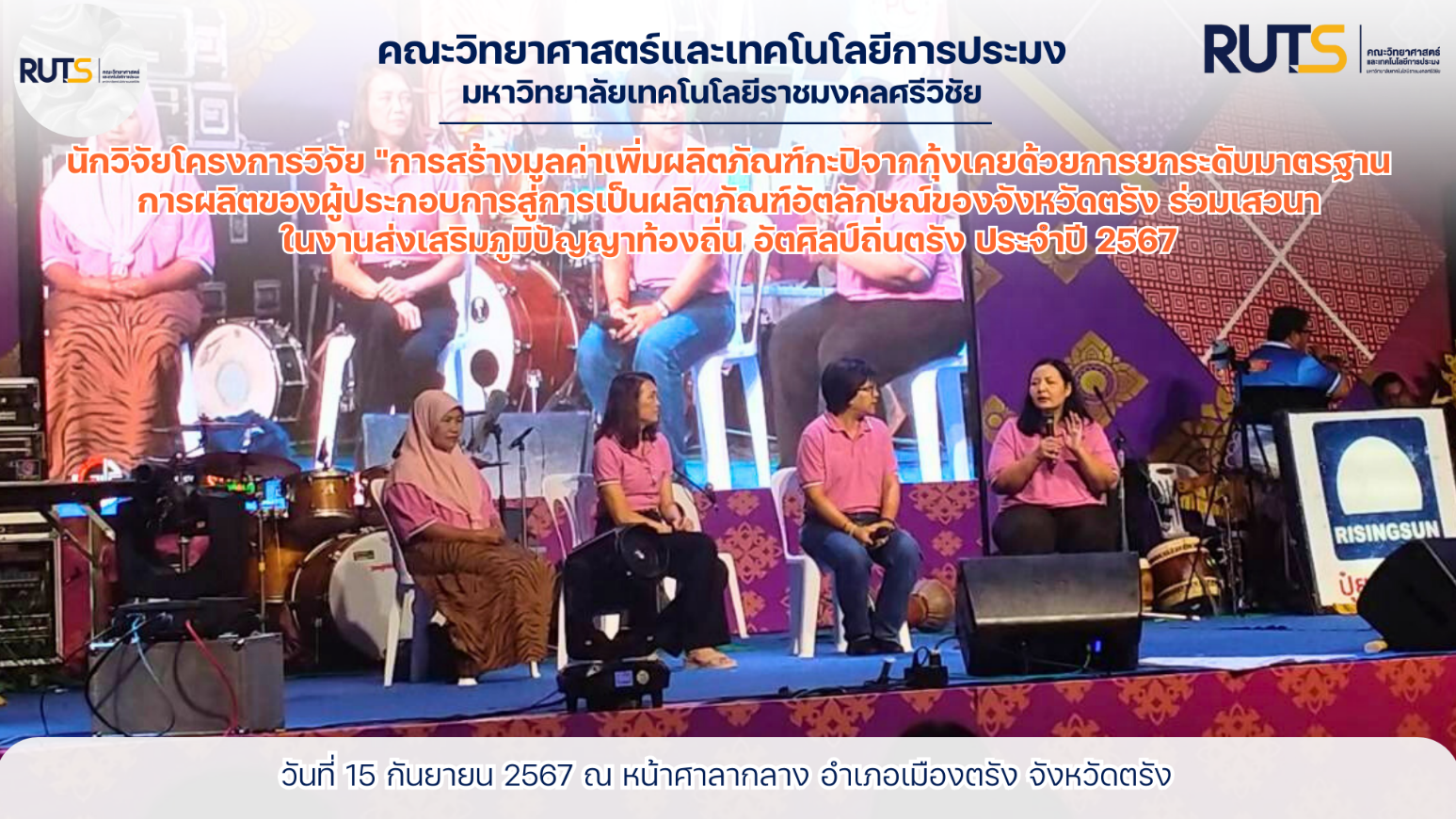
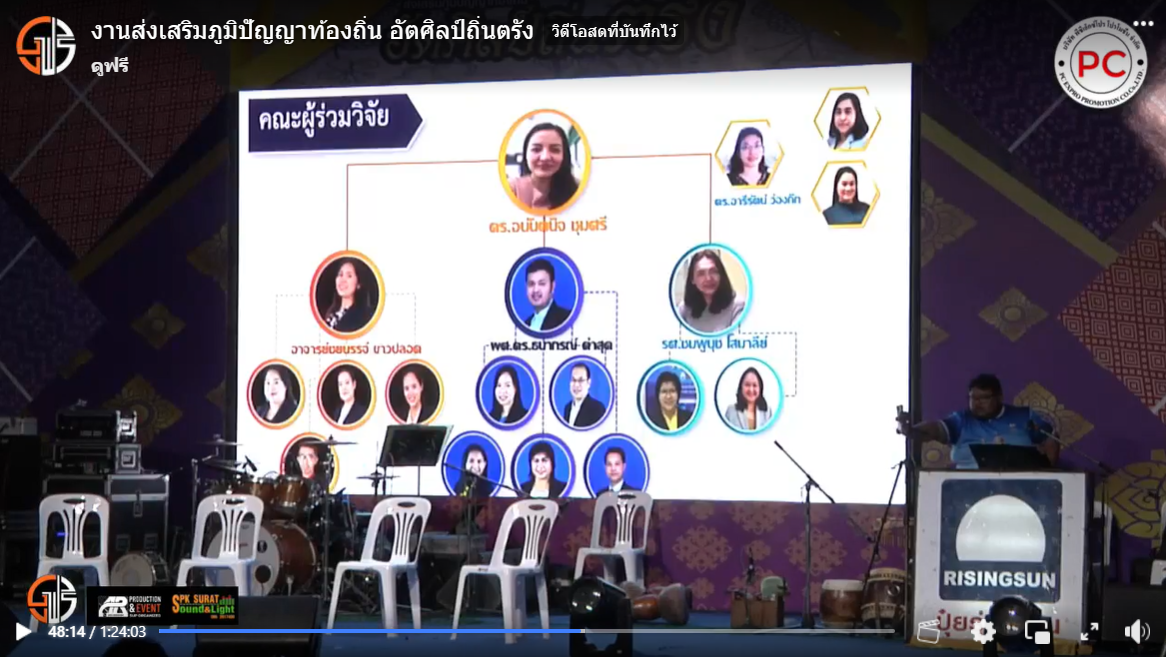
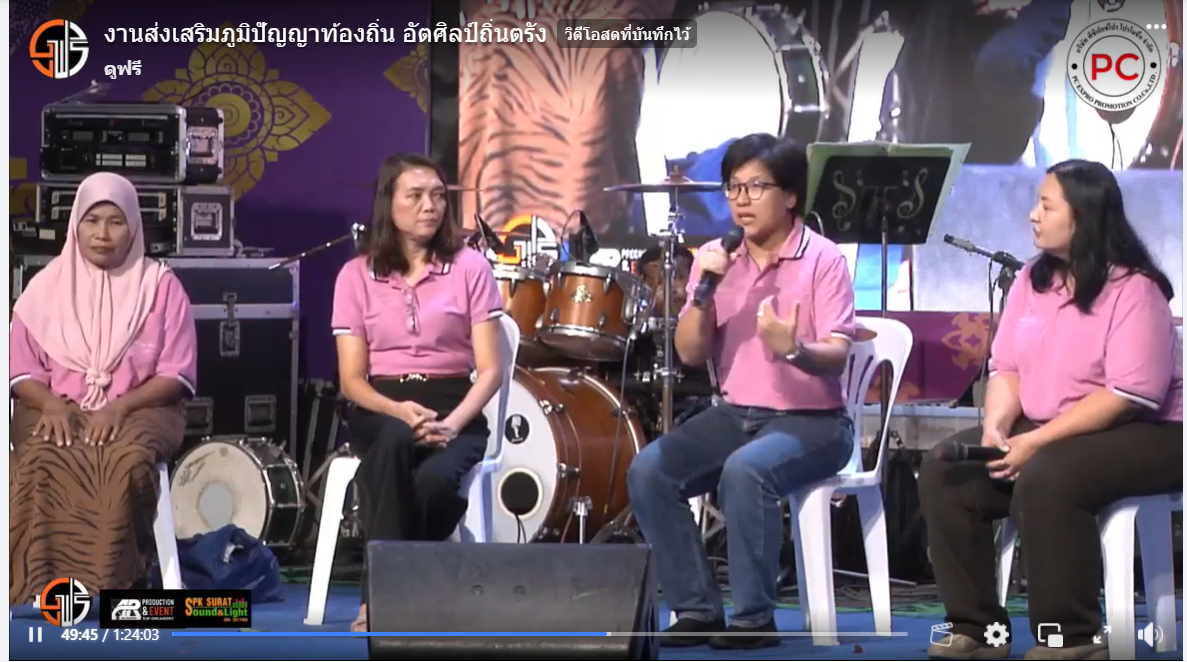
Related Link
รับชมการถ่ายทอดสอดการเสวนา ช่วงเวลาที่ 45.08 นาที https://www.facebook.com/share/v/WN6hNPy8b72mRdsd/



